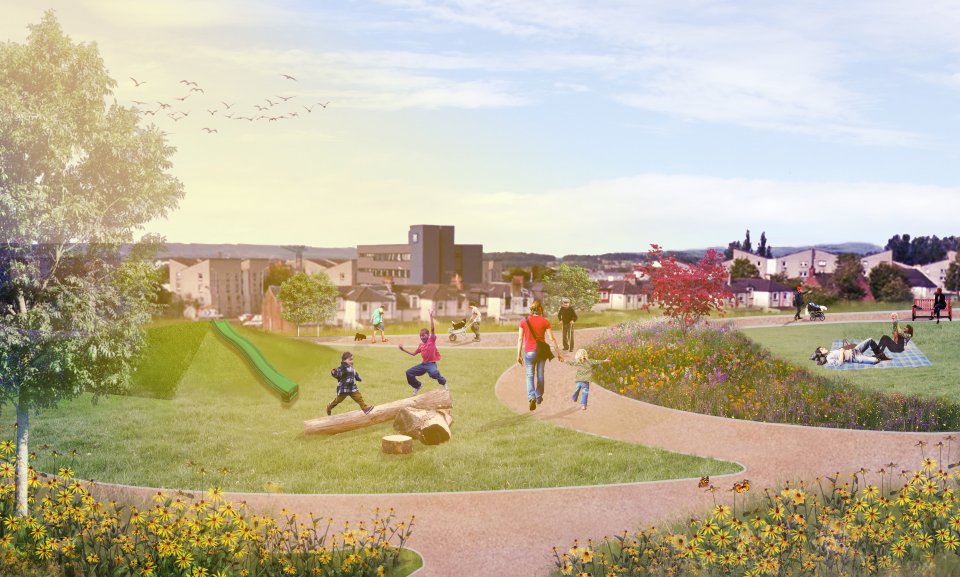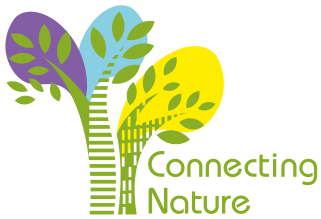
The site is situated within the Drumry and Linnvale area of Clydebank on the northern edge of the town centre. It is located to the north of the town centre and is surrounded by the mainly residential streets of Melfort Avenue to the north, Melfort Court and Kilbowie Cemetery to the east, Montrose Street to the south and Cambridge Ave to the west from which there are a number of potential access points. The site was formerly occupied by St Eunan’s Primary School from 1954 until demolition in 2011. The site is located in a prominent position with unobstructed views towards the town centre and the River Clyde.
The Council’s Open Space Strategy of 2011 identified the Drumry and Linnvale area of Clydebank as lacking access to natural or semi-natural green space. 80% of people in the area live within 500 metres of vacant and derelict land, 31% of children are living in poverty and the area has a higher than average percentage of single parent households. This compares with 62% in West Dunbartonshire as a whole and only 20% in Scotland. The Council’s Open Space Strategy of 2011 identified the area as lacking access to green space. This project provides an opportunity to extend open space and recreation facilities in an urban area where there is a clear shortfall.
A biodiversity place emerged as the most widely supported option from the local community. It will be an important and value community asset.
Key aims:
- Create an attractive and multi-functional greenspace
- Create a space where the community can come together
- Enhance biodiversity and create habitats
- Provide an attractive route with appropriate access and egress points
COMMUNITY
The site will provide opportunities for contact with nature and physical activity for the local population. This will improve the levels of health and well-being in the area through provision of gym equipment, path networks and outdoor seating areas. The site will be an attracttive area where the local community can socialise or participate in recreational activitities.
BIODIVERSITY
The project will plant a range of different plants which will provide habitat, shelter and food throughout the year for local species. Additionally, bat boxes, bird boxes and hedgehog boxes will be installed across the site. Areas for sensory planting and long grass will provide habitat and shelter for insects over the winter.
- Greater ecological connectivity across urban regenerated sites
- Improve connectivity and functionality of green and blue infrastructures
- Increase Biodiversity
- Increase quality and quantity of green and blue infrastructures
- Increased cultural richness and biodiversity
- Changing image of the urban environment
- Increase accessibility to green open spaces
- Increase amount of green open spaces for residents
- Increase communities’ sense of ownership
- Increase social interaction
- Increase well-being
- Social inclusion
- Social learning about location & importance of NBS
